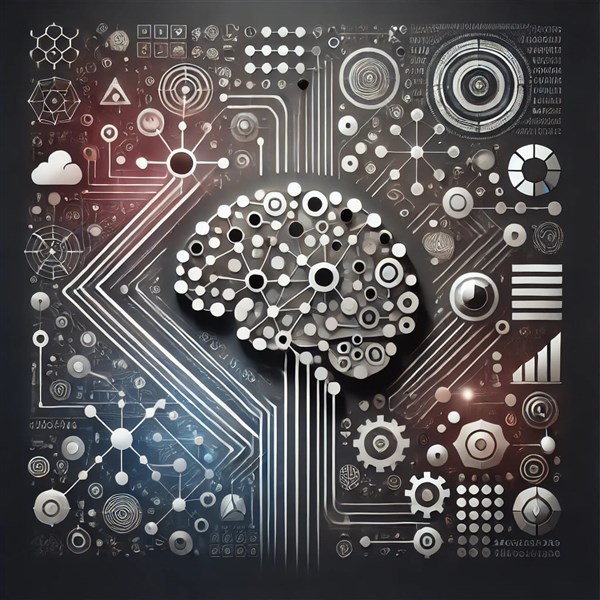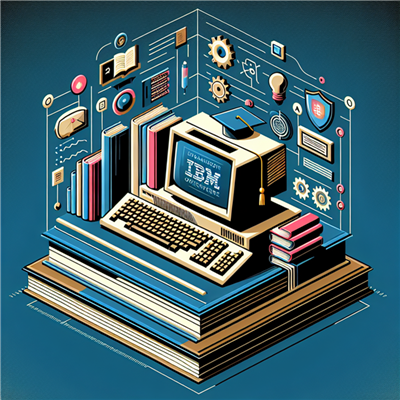
As we move further into the age of artificial intelligence, cognitive computing is becoming a fundamental technology that will drive innovation across industries. Cognitive computing refers to systems that simulate human thought processes, enabling machines to process, analyze, and act on data in a way that mimics human intelligence. From healthcare to finance, cognitive computing is revolutionizing how we solve complex problems, interact with machines, and make decisions.
A Cognitive Computing Course equips individuals with the knowledge and skills to develop intelligent systems that learn, reason, and interact naturally with humans. This course covers advanced technologies such as artificial intelligence (AI), machine learning (ML), natural language processing (NLP), and computer vision, all of which are at the core of cognitive computing.
In this blog, we will explore how a Cognitive Computing Course helps you build intelligent systems for the future, focusing on key concepts, the technologies you’ll master, and the potential career opportunities that await in this exciting field.
What Is Cognitive Computing?
Before diving into the specifics of a cognitive computing course, it’s essential to understand the broader concept of cognitive computing itself. Cognitive computing aims to create machines that think, learn, and adapt in ways similar to the human brain. These systems use self-learning algorithms, data mining, pattern recognition, and natural language processing to analyze massive amounts of data and derive insights that humans can act upon.
Cognitive systems do not just follow pre-programmed rules; they learn from interactions, identify patterns, and improve their capabilities over time. This makes them highly adaptable and intelligent, able to process unstructured data such as text, images, and speech. Cognitive computing is a subset of artificial intelligence but focuses on human-like understanding and decision-making abilities.
Why Cognitive Computing Matters
Cognitive computing is already making a profound impact on various industries:
- Healthcare: Cognitive systems like IBM Watson assist doctors in diagnosing diseases by analyzing medical data and patient records.
- Finance: Banks use cognitive computing to detect fraud, assess risks, and offer personalized services to customers.
- Retail: Retailers leverage AI-driven systems to understand consumer behavior and predict trends, leading to better customer engagement.
- Manufacturing: Cognitive systems improve predictive maintenance, reducing downtime and improving efficiency.
By enrolling in a Cognitive Computing Course, you’ll learn how to build these intelligent systems, preparing you for an exciting career in a rapidly growing field.
What You’ll Learn in a Cognitive Computing Course
A Cognitive Computing Course is designed to teach students how to build intelligent systems that can solve real-world problems. Let’s break down some of the key topics and technologies you’ll cover.
1. Artificial Intelligence (AI) Fundamentals
The course will begin with a foundation in artificial intelligence, focusing on how AI powers cognitive systems. You’ll learn about the basic principles of AI, including the differences between narrow AI (task-specific intelligence) and general AI (human-like intelligence). By understanding the fundamentals, you’ll gain a deeper appreciation for how AI is used to enhance decision-making processes in cognitive systems.
Key topics include:
- AI history and evolution
- AI ethics and challenges
- Rule-based systems vs. self-learning systems
2. Machine Learning (ML) and Deep Learning
Machine learning is a key component of cognitive computing, enabling machines to learn from data without being explicitly programmed. In this course, you’ll gain hands-on experience with machine learning models, learning how to train systems to recognize patterns, make predictions, and continuously improve over time.
Deep learning, a subfield of machine learning, is especially crucial for developing intelligent systems. Using neural networks, deep learning allows systems to learn from vast amounts of data and make complex decisions.
What you’ll master:
- Supervised vs. unsupervised learning
- Neural networks and deep learning architectures
- Building and training machine learning models
- Reinforcement learning for adaptive systems
3. Natural Language Processing (NLP)
Natural Language Processing (NLP) allows machines to understand, interpret, and respond to human language. It is essential for building systems that can interact with people naturally, such as chatbots, virtual assistants, and language translation tools.
In a cognitive computing course, you’ll explore how NLP works and how to implement it in various applications. Topics include:
- Sentiment analysis: Determining the emotional tone of text
- Text classification and summarization
- Speech recognition and synthesis
- Named Entity Recognition (NER)
NLP is an essential skill for anyone looking to build intelligent systems that can understand and generate human language.
4. Computer Vision
Computer vision enables machines to interpret and make decisions based on visual data, such as images and videos. This technology is crucial for applications like facial recognition, object detection, and autonomous vehicles.
During your cognitive computing course, you’ll gain practical knowledge of computer vision techniques, such as:
- Image classification and object detection
- Convolutional Neural Networks (CNNs)
- Optical character recognition (OCR)
- Real-time video analysis
By mastering computer vision, you can build systems that “see” and understand the world as humans do.
5. Data Science and Big Data Analytics
Cognitive computing relies heavily on data, especially unstructured data like text, images, and videos. You’ll learn how to manage, process, and analyze large datasets using data science techniques. This includes understanding the basics of data collection, storage, and cleaning, as well as how to apply algorithms to extract meaningful insights from raw data.
In the course, you’ll cover:
- Big data tools like Hadoop and Spark
- Data visualization techniques
- Predictive analytics and modeling
- Data-driven decision-making
Mastering data science allows you to feed cognitive systems the information they need to learn and make accurate decisions.
6. Cognitive System Architecture
You’ll also learn how to design and develop cognitive computing systems from the ground up. This includes understanding the architecture of cognitive systems, integrating different technologies like machine learning, NLP, and computer vision, and ensuring that these systems can operate at scale.
Key concepts include:
- Hybrid cloud architectures for cognitive systems
- Building scalable and fault-tolerant systems
- Combining AI models with cloud services (e.g., IBM Watson, Microsoft Azure)
- Integration with existing enterprise systems
Understanding system architecture is essential for deploying cognitive systems in real-world environments where performance, scalability, and reliability are paramount.
The Benefits of Cognitive Computing Training
A Cognitive Computing Course provides a pathway to exciting career opportunities in various fields. Here are some key benefits:
- In-Demand Skill Set: As industries continue to adopt AI and cognitive technologies, professionals with these skills will be in high demand. Companies across sectors like healthcare, finance, retail, and manufacturing are looking for experts who can build and maintain intelligent systems.
- Career Flexibility: The skills you gain in a cognitive computing course are applicable in various roles, including AI engineer, data scientist, machine learning specialist, software developer, and business intelligence analyst.
- Hands-On Experience: A cognitive computing course typically includes practical projects, allowing you to work on real-world problems. By building intelligent systems, you’ll not only learn theoretical concepts but also gain hands-on experience that prepares you for future roles.
- Advancing Innovation: Cognitive computing is at the forefront of technological innovation. By mastering these skills, you will play a key role in developing the next generation of intelligent systems that can revolutionize industries.
Career Opportunities After Completing a Cognitive Computing Course
Completing a cognitive computing course opens up a wide range of career opportunities in both established industries and emerging tech fields. Some roles you could pursue include:
- AI Engineer: Develop intelligent algorithms and models for real-world applications.
- Machine Learning Specialist: Design and implement machine learning models that allow systems to learn from data.
- NLP Engineer: Focus on building language processing systems that can understand and respond to human language.
- Data Scientist: Analyze large datasets and extract insights to drive business decision-making.
- Cognitive Systems Architect: Design and deploy large-scale cognitive computing systems for enterprises.
Conclusion
A Cognitive Computing Course offers a comprehensive education in building intelligent systems using AI, machine learning, NLP, computer vision, and more. As businesses increasingly rely on cognitive technologies to drive innovation and efficiency, the demand for professionals with these skills is skyrocketing.
By mastering these essential tools and technologies, you can position yourself at the forefront of the AI revolution, ready to build the intelligent systems that will shape the future of industries worldwide. Whether you're an aspiring AI engineer or a seasoned IT professional looking to upskill, cognitive computing training provides the foundation you need to succeed in an AI-driven world.
Koenig Solutions is a leading IT training company with over 25 years of experience in providing certifications in top technology courses. We are committed to delivering high-quality training that meets the needs of our students.
Our cognitive computing course is taught by industry experts who have hands-on experience in developing cognitive computing systems.
At Koenig Solutions, we believe that the future is intelligent, and we are here to help you build it.
Learn more about our cognitive computing course and other IT training courses at Koenig Solutions.







COMMENT